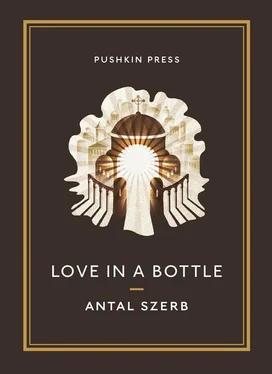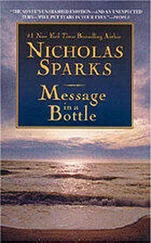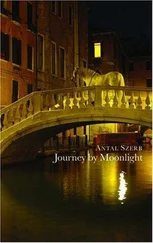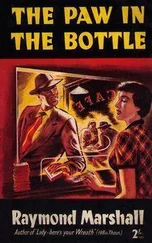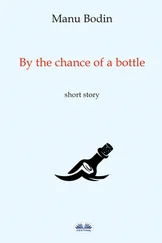Antal Szerb - Love in a Bottle
Здесь есть возможность читать онлайн «Antal Szerb - Love in a Bottle» весь текст электронной книги совершенно бесплатно (целиком полную версию без сокращений). В некоторых случаях можно слушать аудио, скачать через торрент в формате fb2 и присутствует краткое содержание. Год выпуска: 2013, Издательство: Pushkin Press, Жанр: Классическая проза, на английском языке. Описание произведения, (предисловие) а так же отзывы посетителей доступны на портале библиотеки ЛибКат.
- Название:Love in a Bottle
- Автор:
- Издательство:Pushkin Press
- Жанр:
- Год:2013
- ISBN:нет данных
- Рейтинг книги:5 / 5. Голосов: 1
-
Избранное:Добавить в избранное
- Отзывы:
-
Ваша оценка:
- 100
- 1
- 2
- 3
- 4
- 5
Love in a Bottle: краткое содержание, описание и аннотация
Предлагаем к чтению аннотацию, описание, краткое содержание или предисловие (зависит от того, что написал сам автор книги «Love in a Bottle»). Если вы не нашли необходимую информацию о книге — напишите в комментариях, мы постараемся отыскать её.
and
.
Love in a Bottle — читать онлайн бесплатно полную книгу (весь текст) целиком
Ниже представлен текст книги, разбитый по страницам. Система сохранения места последней прочитанной страницы, позволяет с удобством читать онлайн бесплатно книгу «Love in a Bottle», без необходимости каждый раз заново искать на чём Вы остановились. Поставьте закладку, и сможете в любой момент перейти на страницу, на которой закончили чтение.
Интервал:
Закладка:
But present in the greatest numbers were English-speaking girls, from that veritable League of Nations the United Kingdom and its associated Dominions. Monsieur Robinet had in fact spent some years as a boots in a little hotel in London, studying the peculiar tastes of the Anglo-Saxons and learning how to satisfy the more basic needs of his English guests. He could moreover profess a wife and a niece, presently attired as monkeys. In the boarding house for five guests the three of them carried out all the daily renewed Herculean tasks collectively known as ‘service’ and, indefatigable and resolute in their money-making Frenchness, they never wearied of it. True, there was also a waiter from Alsace, but he was still very young and able to make himself understood to the guests only through myself as interpreter. I was the poor fellow’s sole channel of communication with the non-German-speaking world, and the channel was mostly one-way. I was like the disciple of a reclusive scholar who, though loyal, nonetheless finds his situation impossible, for I in my turn couldn’t follow his dreadful regional dialect.
Rapidly, and by foreordained necessity, I set about flirting with a little Highland Scots girl, an Arts student. With my usual boyish enthusiasm, and looking for an easy topic we might have in common, I expounded St Thomas Aquinas’ theory of time to her. “Yes, yes,” she replied — pronouncing that ‘yes’ with the wonderfully impenetrable simple-mindedness that makes British girls so attractive. Eighty per cent of Marcelle’s acquaintances were young people, and when I finally caught up with her group the following scene was taking place:
“Actually, I was brought up in a forest. My father was a coal miner, you know. But what do you people know about such a life? I slept in a hollow tree; I found my way home by the stars. I know how to trap rabbits with a necktie — which is no great thing, really. You watch the place the rabbit always goes back to, and then you tie the tie into an open knot to make a noose. The rabbit runs along its usual path and doesn’t look where it’s going: he runs bang into the noose and you’ve got him.”
Everyone listened with a mixture of astonishment and respect, and I feel compelled to say a few words about who Marcelle was. Essentially, she was the girlfriend of my friend Gábor Pilaszanovits, and, as such, mine. The difference lies only in the ambiguity of the word ‘girlfriend’: to say that she was his girlfriend is somewhat to understate the reality; to say that she was mine would be going too far. Besides, Gábor wasn’t my friend in the sense that we had any shared intellectual interests. I loved the way everything about him was so impressive, so flamboyant, from his name to his way of speaking. His tall, somewhat stooping form had the silent dignity of a Transdanubian poplar; his physical movements suggested the graceful lines of a classic limousine, and in his permanent lack of cash I detected the devil-may-care attitude of the true gentry. I adored him for the fact that he despised books and could still like me, which seemed to show that there was something more in me than mere bookishness. I adored him because women doted on him. Wistfully I contemplated that do-or-die quality he possessed that I so clearly lacked. These ‘negative friendships’ do sometimes happen, like that between the crocodile and the ibis in the world of nature.
Marcelle worshipped Gábor, referring constantly to him as her ‘Lord and Master’: such were her feelings about the aristocracy. She was always telling people that she was Swedish, partly because Swedes live so far away, and partly because her hair was ginger-blonde. She spoke that exquisite French you so rarely hear in France. Her sentences came across like so many casual accounts of an aristocratic world she had never been part of. Making impeccable use of the imperfect subjunctive she would assert that she had been raised in the most exclusive girls’ boarding school in the most clericised département of all, and gave you to understand, in a manner not to be gainsaid, that her mother had withered away in mourning for the Bourbons.
This was why the story about the coal miner had produced such astonishment and dismay. What it told me was that she had already started drinking. These occasions had two, somewhat contradictory, endings: she would kiss all the waiters because they ‘reminded her of her uncle’, and then scold her knight errant furiously if he tipped the driver a sou more than was absolutely necessary.
The moment she spotted me she abandoned the young men, dispatched the little Highland Scot at my side with a well-placed remark and hauled me off to the tables.
“Milord,” she said, reverting to aristocratic mode, “you are neglecting your duty to Venus and Bacchus. But tonight I intend to play the role of Venus for you. But not the Venus de Milo, poor thing, who never steps out of her evening dress.”
The reality of her own arms was not in question, and as if to prove it, perhaps a little unnecessarily, she slid one into mine and gripped me by the neck, making me lean over at an angle that can be attained only in Paris. Through the stiffness of my wing collar I discovered the power that lies in a woman’s arms on a summer evening. There are people who, when searching for images of a life of storm and tempest, rhapsodise about cars, machines and surging crowds, but what is an entire industrial city compared to a woman’s arm? I was a prisoner, led by the neck — like a calf, or a man to the gallows, or a husband.
By the time we had knocked back a large bottle of cognac swimming with ice cubes, I had gathered the courage to kiss that arm.
“You were a great success, Marcelle,” I said, for something to say.
“Oh, yes, with all those… Martians and eunuchs.”
“What do you mean?”
“Martians, because they’ll never get any closer to me, and if they did, they might as well be eunuchs, so far as I’m concerned.”
“I’ve been your Martian for a long time now,” I said gently.
“Not any more. Today the good Lord hung the stars up upside down… Look, the English girls are already drunk and you’re still sober. Perhaps that’s rather wise of you.”
I drank and marvelled at her chameleon-like nature. To tell the truth, she had always deeply attracted me: I loved both her wonderful two-sidedness and its very transparency, in the same the way that I had always been secretly attracted to walking sticks that could turn into umbrellas, slide rules that could be used as laryngoscopes, and the symbols in Ibsen. I was also drawn to her for the reason that men are generally attracted to women: that is to say, I have no idea why. But this particular attraction I had dismissed as just another of the hopeless loves with which I serially embellished my young life.
I knew that Marcelle adored Pilaszanovits with the tragic fidelity of a midinette , which tempted me to believe that La Dame aux camélias might not be entirely nonsense. But Pilaszanovits treated her with the tender casualness of a con man fingering a dud chequebook. (Though, later, when Marcelle left him for a rayon manager in a morning coat at the Galeries Lafayette, Pilaszanovits killed himself. Every year I laid flowers on his grave in the Montparnasse cemetery, the ones which featured in his favourite song: lilies of the valley, purple carnations, common larkspur, sweet marjoram. But that’s a long way in the past now, and experience tells me no one would believe the story anyway.)
But how could I, or perhaps more precisely in this context, how could my humble self, have believed for a moment that Marcelle might think me worthy of a single glance, in the meaningful sense of that phrase, when Pilaszanovits could treat me as follows in her presence: “Tamás, old chap, you’re a terribly clever man. You’re so clever you’re quite unlike anyone else. You’re so clever no normal woman will ever understand you. So clever that women invariably treat you as a bit of a joke.”
Читать дальшеИнтервал:
Закладка:
Похожие книги на «Love in a Bottle»
Представляем Вашему вниманию похожие книги на «Love in a Bottle» списком для выбора. Мы отобрали схожую по названию и смыслу литературу в надежде предоставить читателям больше вариантов отыскать новые, интересные, ещё непрочитанные произведения.
Обсуждение, отзывы о книге «Love in a Bottle» и просто собственные мнения читателей. Оставьте ваши комментарии, напишите, что Вы думаете о произведении, его смысле или главных героях. Укажите что конкретно понравилось, а что нет, и почему Вы так считаете.
